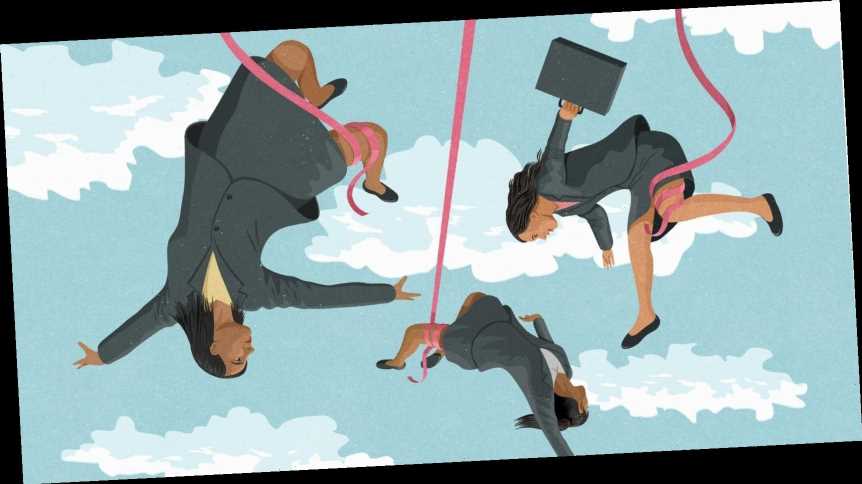Defined as an “occupational phenomenon” resulting from “chronic workplace stress that has not been successfully managed,” burnout is becoming a hot topic of conversation. But how can we tell when we’re at risk? We asked an expert to give us the basics.
Less than one year after the World Health Organisation (WHO) added burnout to its International Classification of Diseases, the conversation surrounding the condition continues to develop, as we all wake up to the reality of our unhealthy working habits.
Luckily, as a society, we’re becoming more aware than ever of the impact that high stress levels and long hours can have on our health, especially when it comes to our mental and emotional wellbeing.
From disrupted sleep patterns to delayed periods, reaching a state of burnout can be seriously detrimental to our bodies – and that’s not forgetting the array of mental health issues which can arise from this kind of extreme exhaustion.
It’s clear that, whatever we do, we need to be more aware of the impact our working routines and lives have on our health. But with the presence of our ‘always on’ culture and endless e-mails looming over us, it can be hard to tell when regular workplace stress is becoming a much bigger problem.
In an attempt to clear everything up, we asked Dr Megan Jones Bell, chief science officer at Headspace, to break down exactly what we should be looking out for if we’re concerned we may be developing burnout.
1. Fatigue
According to Dr Jones Bell, the biggest indicator that we could be heading towards burnout is a drop in our energy levels throughout the day – so it’s really important that we remain aware of what our ‘normal’ energy levels are.
“Our normal energy levels are a really strong signal about your overall health, frankly,” she explains. “So, I would look ask yourself, ‘Am I feeling more tired?’
“For me, I notice I start sighing a lot, and I start talking about how I’m tired or feel more inclined to have more caffeinated beverages at a certain time of day.”

She continues: “There are lots of behavioural cues – it might be that you’re starting to sigh, it might be that you’re walking towards the coffee or tea more often, but it’s in our energy.
“Our energy is a very clear indicator of your mental and physical load.”
2. Sleep disturbance
Our sleep is inextricably linked to all the other areas of our body, so it makes sense that a change in our sleeping patterns could be a sign that something is going on.
“Sleep disturbance is another sign that you could be developing burnout, whether you’re having a hard time falling asleep, or you’re waking up and you don’t feel well rested,” Dr Jones Bell tells Stylist. “So, with sleep we do care about quantity – getting fewer hours of sleep than normal is one indicator – but what is actually more powerful is your sleep quality.
“If you wake up and don’t feel rested, you’re not getting good quality sleep. It might be that you’re not getting enough sleep, but most likely it’s the sleep quality. There is a direct relationship between daytime stress and difficulty falling asleep, and that’s actually why meditation and mindful practices can help people sleep better, because managing daytime stress is a huge opportunity in terms of improving your night-time experience.”
3. Feeling flat
Because of the toll burnout takes on our bodies, it can often manifest as feeling depressed or low – and this is another key sign to look out for.
“Often before we feel sad and depressed – before a really low mood starts – it can surface as feeling flat. We start to lose enjoyment in the things that typically bring us pleasure,” Dr Jones Bell explains.

“When I get like this I feel more inclined to isolate myself and not go out with friends even though that is something that is, in general, pleasurable for me,” she continues. “I have this visual of it – I start to retreat into my shell. I do fewer things, I spend more time asleep at home.”
“Look out for whether you’re engaged in more passive activities than active activities. For example, while going home and watching TV rather than going out with friends might be something that you do to help give yourself a break, if you’re starting to do that every night, and you typically have more of a balance of me time versus social time, that can be a clue.”
While the three points above could be a sign that you’re edging towards burnout, they could also be a sign that you might be dealing with a more serious mental health issue. Always seek professional advice if you’re worried about your mental health and wellbeing.
Mental health charities such as Mind offer free, professional advice to anyone dealing with a mental health problem or looking to find out more information. You can call them on 0300 123 3393, or send an e-mail to [email protected].
Dr Megan Jones Bell is the Chief Science Officer at Headspace. To find out more visit www.headspace.com
Images: Getty/Unsplash
Source: Read Full Article
